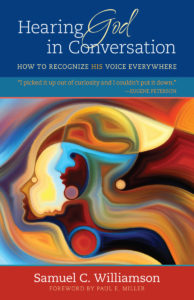As a college student, I wanted to spend a summer abroad, but money was so tight that Raman noodles were my Sunday treat. I found a communal farm in Israel (sort of like modern WWOOFING) that provided room and board plus ten dollars a month (and a daily pack of cigarettes!) for simple, manual labor. I signed up.

I talked with a few people who had “volunteered” in the past. They said that it’s difficult to gain the respect of the communal farm members; partly because the large farms attracted loads of volunteers; but mostly because the host members found the volunteers to be irresponsible, unreliable, and lazy.
I wanted the respect of the farm members, so I signed up for a small farm (in order to actually rub elbows with members) and I resolved myself to be responsible and diligent.
On the flight to Tel Aviv I read this verse: “Even a fool who keeps silent is considered wise; when he closes his lips, he is deemed intelligent” (Pr. 17:28). In my continuing determination to gain respect, I decided to speak less and listen more.
My siblings had been urging this practice on me for years.
It All Went Downhill Fast
My first job began at 4:00 a.m. I didn’t have an alarm clock so my roommate promised to wake me. But he forgot to set his alarm. Arriving late to my work debut, I desperately wanted to defend myself to my new boss, but the proverb—When he closes his lips, he is deemed intelligent—was still fresh. Instead of blaming my friend, I apologized without excuse.
The next day he forgot again, but the verse still haunted me, so I apologized once more.
That evening I had a few hard words with my roommate—I didn’t keep completely silent—and he swore he would remember. But he forgot. I was utterly humiliated and frantically wanted my boss to know the truth. But I apologized this third and last agonizing time. With no defense.
On the fourth night, I stole my roommate’s alarm, set it, and I was the first to arrive for work. Later that week, my friend secretly confessed to my boss that it was his own mistake that caused me to be late three days in a row.
My boss found me in the cafeteria, told me of my roommate’s confession, and added, “Sam, most volunteers overflow with creative justifications for their untrustworthiness. You are my first volunteer ever to apologize without excuse. I will name you ‘Emet’” (which means “true”).
From then on, he insisted I eat with his family, and he introduced me to his fellow members of the farm’s leadership team with these words: “Meet my good friend, Emet.”
He never again called me, “Sam.”
God Frequently Takes Us on Paths We Don’t Expect
When we suffer loss—anything from tarnished reputation, rejection, theft, and even death—we want to get back to what we had before. But the gospel promises more than a mere return to our previous state of affairs. C. S. Lewis wrote,
For God is not merely mending, not simply restoring a status quo. Redeemed humanity is to be something more glorious than unfallen humanity.
I felt stung for three, short days; Joseph endured many years; and Jesus suffered an eternity. God’s ways are better than ours. Even when they’re scary. Because God invented resurrection.
If I had avoided the sting of three embarrassing days, my boss would never have befriended me; if Joseph wasn’t enslaved, he and his family would have died of starvation; and if the disciples got their way, we would never have known the depths of God’s love nor the heights of his freedom.
It’s a spiritual principle that God uses our deepest pains to bring about our greatest joys. Restoration of status quo is child’s play; transformation of suffering into glory is the gospel.
The Principle of Transformation
Scripture predicts suffering for every human being. It may be wounding, rejection, marginalization, forgotten-ness, or maybe the untimely death of a loved one.
But Scripture also promises hope. Every page of the Bible explodes with a simple, spiritual, counterintuitive principle: God transforms our deepest sufferings into our greatest joys.
We need not fear our greatest fears. From a roommate’s minor negligence to the crucifixion of the promised messiah, God always resurrects inconceivable joy out of seeming inconsolable grief.
And that is God’s Emet, truth.
Sam
++++++++++++
This article deals with how to hear God. I hope you consider buying my new book, Hearing God in Conversation: How to Recognize His Voice Everywhere. It will be released in mid-July by Kregel Publications.
I believe it will help you begin to hear God in a new conversational relationship.
Please consider pre-ordering the book now by  clicking on one of these links or on the book cover.
clicking on one of these links or on the book cover.
Topics include:
- Learning to recognize the sound of God’s voice
- Hearing God in his silence
- How to Brainstorm with God
- Hearing God in Scripture
- Hearing God for guidance
Wayne Jacobson, pastor and author of He Loves Me and Finding Church, said this:
If you want to grow in your ability to recognize how God makes himself known to you, I can’t recommend a better guide than Sam Williamson’s Hearing God in Conversation.

 Hearing God in Scripture
Hearing God in Scripture
Very nice post Sam.. ‘Suffering’ always has a silver lining at the end.. The trick I believe is to stay faithful till the end like Christ did.. Unfortunately we live in world that doesn’t see things that way, it’s all about abundance and prosperity, especially in the churches..there is room for that but not at the expense of one of the endearing quality of Christ. Thank you ?
Hi Chiwueze,
Great point! Yeah, I too often do not “stay faithful to the end.” Like Abraham did, sometimes I try to force God’s hand to fulfill His promises in line with my timetable. (It usually doesn’t work well.)
I don’t know what to do about all the modern church’s teaching on abundance, prosperity, etc.
Christians for nineteen hundred years talked openly about trials, afflictions, and suffering with Christ. Our modern world is the most comfortable the world has ever been; we OF ALL PEOPLE should hear more (and practice!) suffering.
Thanks for pointing that out
What a great story Sam. What an honor God bestowed on you, and what a great name!!! Your Brother in Christ, Jeff
Hey Jeff, great to hear from you.
It really was an honor. And the thing I have to keep remembering is that if I had ignored God’s word to me on that flight (to shut up!), then I would have made an excuse for being late; and my attempt to gain respect would have backfired.
It was God taking me through a mini-trial–on the hardship scale, it was about a 2 out of 10–but if God hadn’t taken me through it, I never would have gotten what I wanted!.
Sam
I sure did appreciate this post Sam! It come at such an opportune time to stir up much needed hope. Thank you!
Hi Michael,
Thanks. And it works both ways. Your encouragement stirs up hope in me.
Sam
I nearly didn’t click on the link. It had to be the Holy Spirit, because there’s just nothing on the facebook feed that would have prompted me to do it otherwise. I’m glad I did, though. I really love God stories. And I appreciate your writing. Not everyone who can write grammatically can connect a seemingly minor story to a great truth. May I read this aloud to a small group of Lenten worshipers about four weeks from now?
Jen, you can read it on National TV!!
Thanks,
Sam
I am yet to experience this.
Hi Beth,
I will pray that you do.
Sam
Beautifully said. Thank you.
Sam, as always I have been encouraged by your posts that aren’t “preachy” but relatable.
I have been through suffering only God could bring me through and heal my heart in the process. I have a name I have to use for legal purposes (Annette). Over the years I had wanted to change the name desperately.
Eventually as I began to find true freedom through grace I began trying on a new name. It was given to me by one of my many foster fathers. This foster father, named Bob, would use the name Annie as a term of affection and acceptance. He didn’t look at me as the person who had suffered, but as the person who was loved.
I still have to use the name legally but my name Annie which will soon become, Annie Pauli, is the name I am called by. It’s like an example of grace. My name Annette is there to represent what the law had given me and Annie is there to represent the new name I have been given by grace.
Remember how Jeus would change the names of the disciples after he called them to follow.
I love this story. My suffering has now taken on a new identity. Freedom.
Annie,
Congratulations on your upcoming “new name”!
Thanks my friend